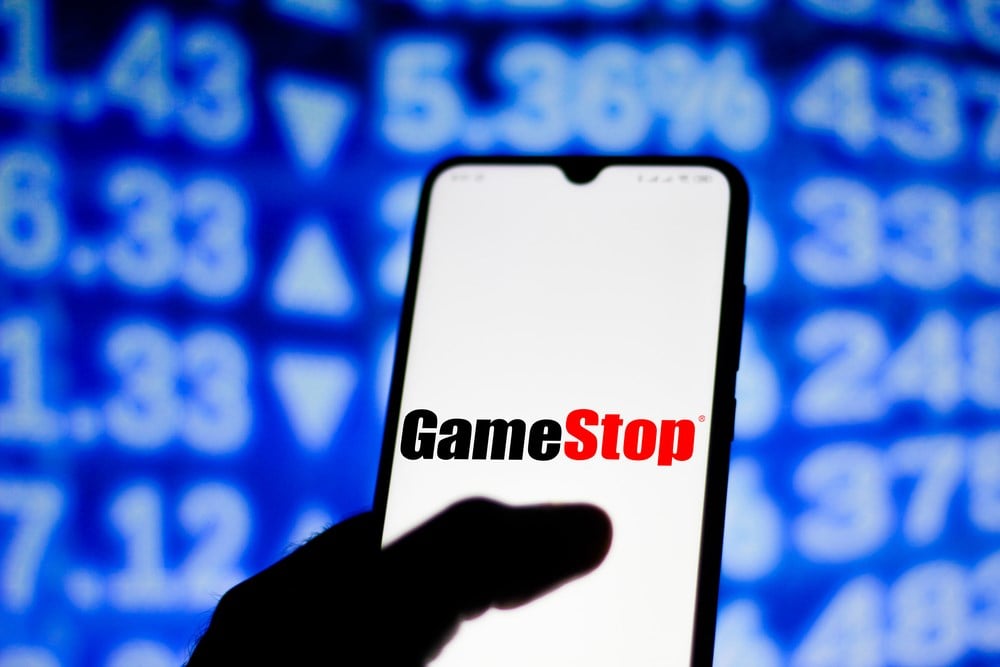
The Ryan Cohen era at GameStop Corp. (NYSE: GME) is off to a rough start. Since the Chewy.com founder added CEO to his business card late last month, shares of the video game retailer have slipped another 10%. They reached a new 52-week low last week — and are now in the red for the year (after being up as much as 46%).
Mr. Cohen, who is also the executive chairman of GameStop’s board of directors, inherits a company attempting to reinvent itself in the post-meme stock world. Nearly three years removed from GME’s atmospheric rise, video games are no longer the only entertainment source in town. Plus, higher prices have made consoles, games and collectibles harder to afford for much of GameStop’s customer base.
In turn, the company is aiming to evolve into a more comprehensive entertainment business that is less dependent on cyclical video game sales. Non-fungible tokens (NFTs), digital content and pop culture merchandise are all part of the playbook. Hitting the reset button, however, has yet to pull investors back into the game.
How Are GameStop’s Recent Financial Results?
When GameStop reported second quarter financials last month, the numbers were actually quite good. Revenue increased year-over-year for the first time in five quarters and was slightly ahead of consensus. Both hardware and software sales were up, offsetting weakness in collectibles. The company posted a much smaller-than-expected net loss, marking the third straight bottom line beat. Unfortunately, the market barely blinked.
On the day after the Q2 release, GameStop rose less than 1%. A mere 5 million shares exchanged hands. Back in the meme heyday, daily trading volume was upwards of 200 million shares. Granted, the stock has since done a 4-for-1 split, but a sobering reality has set in. Social media’s love affair with GME is all but dead. Not even a crowning of the ‘meme stock king’ himself as CEO sparked a revival.
The stock now finds itself in ‘no man’s land.’ Retail investors have moved on to artificial intelligence (AI) high-flyers and old favorites like Carvana and cryptocurrencies. Institutional investors continue to pass on the name absent signs of sustainable profits. This leaves GME floating in space without a passionate fan base. For this to change, either the fundamentals — or the Reddit hype — will need to improve dramatically.
Does Gamestop Stock Still Have Short Squeeze Potential?
On September 29th, ‘Dumb Money’ starring Paul Dano, Pete Davidson and Seth Rogen hit theaters nationwide. Based on the Ben Mezrich book 'The Antisocial Network,’ the movie chronicles GameStop’s epic short squeeze of January 2021 that helped make WallStreetBets and Roaring Kitty household names. It’s conceivable that the film could help get the band back together again for an encore, but that has yet to happen.
This doesn’t mean GameStop's short squeeze potential is over. In fact, the underlying conditions for a short covering rally are still there. Although Wall Street has all but abandoned following the irrational mover, what little analyst coverage remains is bearish. Last month, Wedbush reiterated its Underperform rating on GME and lowered its price target to $6.00. During GME’s parabolic run to $483.00, negative Wall Street sentiment played a big role in fueling traders’ rebellious interest.
Secondly, short interest in GME is relatively high. More than 20% of the 266 million share float is currently in the hands of short sellers. This applies to only 21 other U.S. mid-cap stocks. For a massive squeeze to unfold, traders will probably need to launch a coordinated assault in both the stock exchange and the options market. Fervent buying of shares and calls reminiscent of January 2021 would be needed. Given the recent weak volume in GME, this seems like a longshot. Then again, the low activity may be the calm before the storm.
What also makes a post-Cohen GME squeeze plausible is the fact that the stock has shown flashes of volatility this year. In March 2023, GME jumped 35% to roughly $24.00 in heavy volume only to be sent back to Earth. Now around $15.00, GameStop looks like dead and ‘dumb money.’ Do its new billionaire leader and his followers have another trick up their sleeves?





